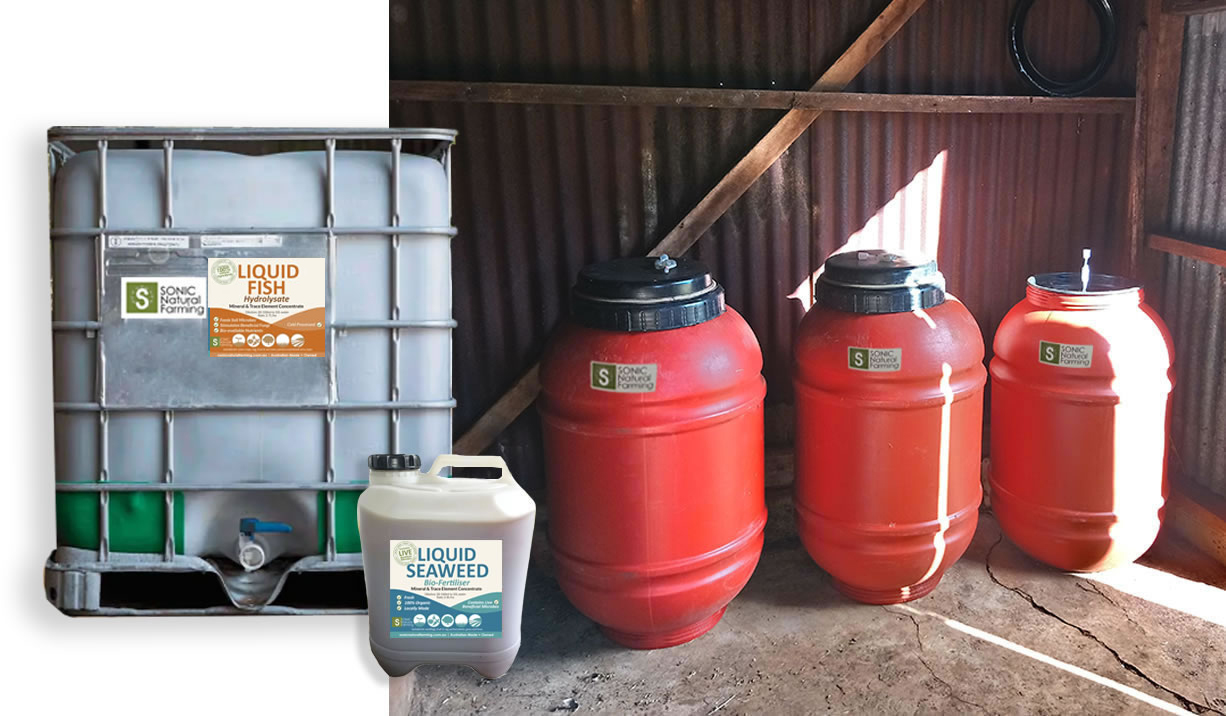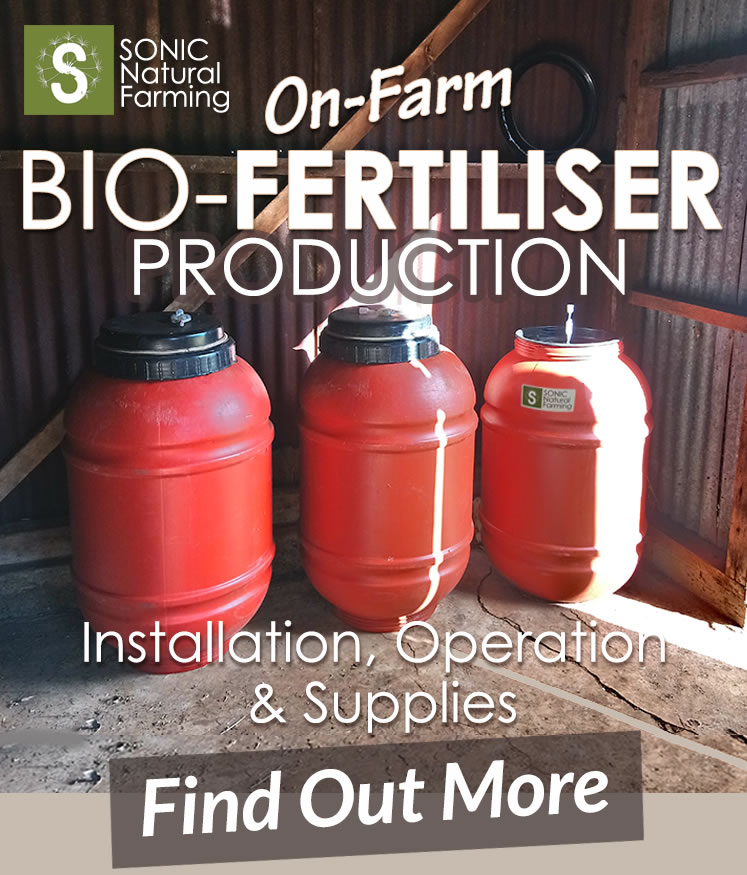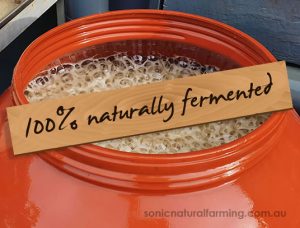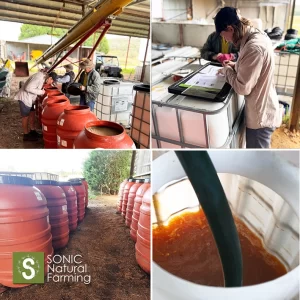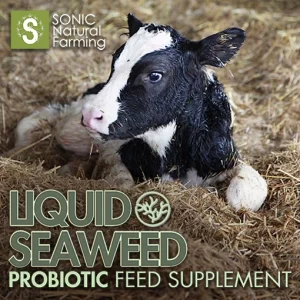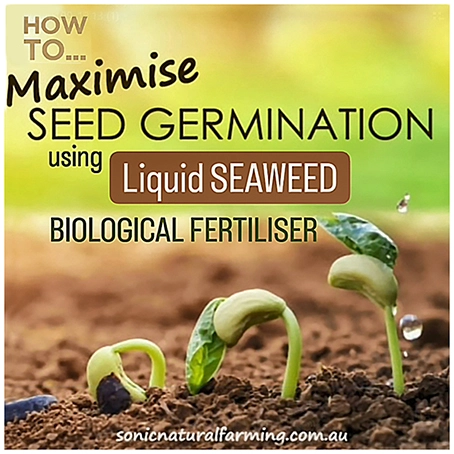If you’re looking to boost your farm’s productivity without breaking the bank, you’re in the right place. In this article, we’ll delve into seven time-tested, cost-effective, and multi-purpose organic fertilisers that have been the backbone of sustainable farming for generations. From biochar and liquid fish to liquid seaweed, rockphos, compost, and vermicast, these natural wonders are trusted by growers across Australia.
Whether you’re a seasoned farmer or just starting out, these organic fertilisers will enrich your soil, improve plant health, and enhance your yields. Let’s dig in and explore how these tried-and-true products can transform your farm.
The Benefits of Versatile Farming
As farms become more diverse and the challenges of maintaining soil health and crop productivity increase, the need for versatile organic fertilisers and multi-use products has never been more critical.
Multi-Use Products
Firstly, the cost savings achieved by acquiring multi-use products cannot be overstated. By investing in a single product that serves multiple purposes, farmers can significantly reduce their input costs. This approach not only saves money but also simplifies the management of farm supplies, making it easier to maintain consistency in application and results.
Reduced Complexity
Organic fertilisers that can be used in various ways—whether as soil conditioners, foliar sprays, or compost enhancers—reduce the complexity of farm management. Farmers can streamline their processes, save time, and focus more on strategic aspects of farming rather than the intricacies of product application.
Healthier Soil
Enhanced soil health is perhaps the most significant benefit of using organic products. Organic fertilisers are designed to improve the overall quality of the soil by increasing its fertility, structure, and microbial activity. Healthier soil leads to healthier plants, better growth, and improved crop yields, creating a positive cycle of productivity and sustainability.
The demand for organic fertilisers in Australia is growing rapidly as more farmers recognise the long-term benefits of sustainable practices
Consumers are increasingly concerned about the environmental impact of conventional farming, leading to a surge in demand for organic fertilisers. This shift is driving farmers to adopt organic products that not only meet market demands but also promote the health of their farms.

Top 7 Time-Tested Organic Fertilisers
1. Organic Seaweed Kelp-Based Fertilisers – Full Spectrum Minerals
Seaweed Benefits
Kelp-based products are among the most versatile organic farming products available.
Seaweed is rich in essential micronutrients, which help enhance soil structure and stimulate plant growth
These natural organic fertilisers improve water retention in the soil, increase the availability of nutrients to plants, and support the development of beneficial soil microorganisms. As a result, crops grown with seaweed kelp fertilisers are often healthier and more resilient.
Organic Seaweed Fertiliser Uses
One of the standout features of seaweed kelp-based fertilisers is their versatility in organic farming. They can be used as:
- Soil Conditioner: Enhances soil texture and fertility, promoting robust plant growth.
- Foliar Spray: Provides immediate nutrient uptake through the leaves, boosting plant health and growth rates.
- Compost Activator: Speeds up the composting process by adding essential nutrients and promoting microbial activity.
Application Tips
Integrating organic seaweed kelp fertilisers into various farming activities can maximise their benefits. Here are some best practices for applying these organic farming products:
- Soil Application: Mix the kelp fertiliser into the soil at the time of planting or as a top dressing during the growing season. This ensures that the nutrients are available to the plants throughout their growth cycle.
- Foliar Spray: Dilute the kelp extract according to the manufacturer’s instructions and apply it directly to the leaves using a sprayer. This method is particularly effective during periods of rapid growth or stress.
- Compost Activation: Add seaweed kelp to your compost pile to boost its nutrient content and speed up decomposition. This enriched compost can then be used to enhance soil fertility across your farm.
Additional uses for seaweed include;
- Livestock Feed Additive: When added to livestock feed, seaweed can help to improve digestion and nutrient absorption. It also has the potential to reduce methane emissions from livestock, contributing to more sustainable farming practices. See probiotic liquid seaweed for livestock.
By incorporating seaweed kelp-based fertilisers into your farming practices, you can improve soil health, enhance plant growth, and support sustainable agricultural methods. These organic farming products offer a practical and effective solution for farmers looking to optimise their operations naturally.

2. Organic Fish-Based Fertilisers – Liquid Protein
Fish-based fertilisers, such as fish hydrolysate fertiliser, is a potent organic solution derived from whole fish, which has been broken down into a liquid form. This method preserves the essential nutrients and beneficial compounds, making liquid fish an excellent choice for organic farming.
Benefits
Organic fish fertiliser is packed with essential nutrients, including nitrogen, phosphorus, and potassium, as well as trace minerals, amino acids, and fatty acids. These nutrients are vital for healthy plant growth and development.
- Promotes Microbial Activity: The organic matter in fish fertiliser supports the growth and activity of beneficial soil microorganisms. These microbes play a crucial role in nutrient cycling, breaking down organic matter, and enhancing soil fertility.
- Boosts Plant Health: Regular use of fish fertiliser can improve plant vigour, enhance root development, and increase resistance to pests and diseases. The nutrients and organic compounds provide plants with a balanced diet, promoting overall health.
Uses
- Soil Drench: Applying fish hydrolysate as a soil drench delivers nutrients directly to the root zone. This method helps in improving soil structure, increasing microbial activity, and ensuring that plants have access to essential nutrients for growth.
- Foliar Feeding: Foliar application involves spraying fish fertiliser directly onto the leaves of plants. This allows for quick nutrient absorption through the leaf surface, providing an immediate nutrient boost and enhancing photosynthesis.
- Compost Enhancement: Adding fish hydrolysate to compost piles accelerates the decomposition process. The nutrients and organic compounds in the fertiliser feed composting microbes, resulting in a richer and more nutrient-dense compost.
Application Tips
- Dilution Ratios: Dilute organic fish fertiliser according to the specific needs of your plants and the manufacturer’s recommendations. A common dilution ratio is 1:50 (1 part fish hydrolysate to 50 parts water) for soil drenching and foliar feeding. Always check the label for precise instructions.
- Timing: Apply fish fertiliser during the early morning or late afternoon to avoid the heat of the day. This prevents rapid evaporation and allows for better absorption of nutrients by the plants. For foliar feeding, ensure the leaves are not wet from rain or irrigation to maximise uptake.
- Preventing Clogs: When using fish fertiliser in sprayers, regularly clean your equipment to ensure smooth application and consistent coverage.
Organic fish fertiliser is a versatile and powerful tool for organic farming, offering numerous benefits and applications. For more detailed information and sourcing options, explore SONIC Natural Farming liquid fish products and affordable supply options.



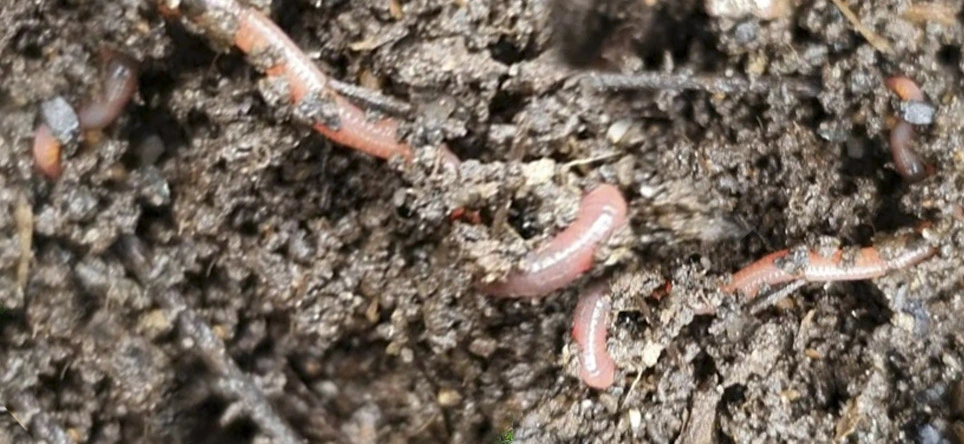


Join us as we delve into the inspiring journey of pecan and sheep farmers, Wayne and Sue Green, who have harnessed the full potential of SONIC Liquid Fish and Seaweed Biofertilisers to achieve remarkable success.
In this video interview, these innovative farmers share their firsthand experiences and insights on how these organic fertilisers have transformed their agricultural practices. They have explored various applications, including foliar spray, irrigation, and boom spray, as well as feeding the liquid seaweed supplement to their sheep.
This comprehensive approach, and the outcomes so far, has underscored the versatility and effectiveness of using time-tested organic fertilisers in modern agriculture.
Want to see how we can help you beat the high cost of organic fertiliser?




